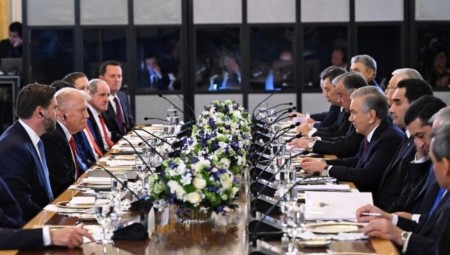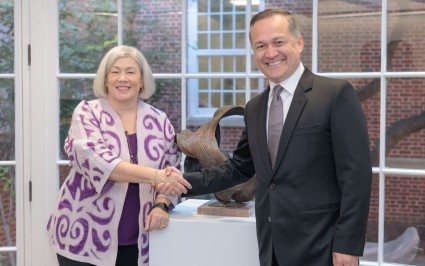Gender equality has not been achieved in any country of the world – gender inequality in Eastern Europe and Central Asia, particularly in rural areas, is still an issue. With the International Day of Rural Women tomorrow, FAO is raising awareness on the situation of rural women and its ongoing and soon to be launched efforts to empower them, and calls for actions to ensure that rural women and girls fully enjoy their human rights.
According to the FAO country gender assessment series for Europe and Central Asia, women play a central role in family farms. While they provide significant contributions to the economy in general and agriculture in particular, their work is often unrecognized and un-rewarded; more rarely are they involved as farm managers or decision makers; and they are overrepresented in informal and unpaid labor. The share of domestic work for rural women is overwhelmingly high compared to their male counterparts and urban women, which limits their opportunities to engage in professional education, training, and gainful economic activities.
Rural women’s empowerment is an issue of women’s rights, and a commitment that all governments in the region have endorsed by ratifying the Convention on Elimination of All Forms of Discrimination against Women.
At the same time, gender equality and investing in women have economic and social advantages, with an impact on the overall growth and eradication of poverty. Having this great potential in mind, FAO is launching its initiatives in Bosnia and Herzegovina, Republic of Moldova, Serbia, and Turkey, aiming at improving food security and sustainable livelihoods through socially inclusive rural development and rural women’s empowerment. With better access to agricultural information, knowledge, and other crucial services, and countering gender-based stereotypes and facilitating behavioral change, the projects will contribute to the creation of a favorable environment for rural women’s economic activities and entrepreneurship.
These interventions will contribute to the efforts already ongoing in the region. FAO is one of four UN agencies implementing the Joint Programme on Rural Women Economic Empowerment. With the help of FAO technical specialists, over 1 500 rural women working in family farms have more than doubled the productivity of their vegetable production, allowing them to sell the surplus at the market, and a total of 805 women founded small enterprises. All rural women-beneficiaries of this programme, as well as their families and communities, improved the quality of their nutrition and livelihoods through increased income generation.
“This year, I’ve processed a lot of vegetables and prepared more jam than before, and my children eat more diverse food every day,” said one of the project’s group leader, Tatygul Kurokova. “I have started to feel that I can do many things. I feel proud of myself. Now we know the value of the land.”
An FAO pilot campaign in Kosovo* help women enjoy their rights over land. After waiving the property registration service charge for couples who jointly register their property, the ratio of female-owned or co-owned land has grown. Support for the initiative includes newly introduced by-laws, awareness-raising measures explaining the benefits of land co-ownership, as well as gender-sensitive training for registry office staff.
In Tajikistan, as in most countries of the region, women have less access to mobility, institutions, and social networks compared to men; their needs are often overlooked. FAO triggered Tajik women’s empowerment through income-generating opportunities in beekeeping. Selected women from the poorest households received training, beehives, and other necessary equipment, and continuous in-field support. The total revenue for the first year reached more than USD 640 per participant. Women proved that beekeeping is not exclusively a “masculine” domain and now they are supporting other women to get engaged.
In Tajikistan, Turkey, and Uzbekistan, the FAO intervention focuses on the provision of gender-sensitive rural advisory services, which ensure that both women and men, working in small holdings and household plots, have access to knowledge and innovation.
The International Day of Rural Women has been observed since 2008, following the decision of the UN General Assembly the year before. It recognizes “the critical role and contribution of rural women, including indigenous women, in enhancing agricultural and rural development, improving food security, and eradicating rural poverty.”















